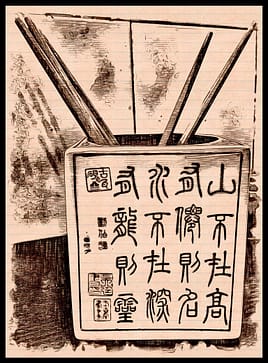
Reductionist Quotes
A couple of things have piqued my interest in the self-help industry recently and started me thinking of taking more care with my online content. One is that I have begun using my Twitter account a bit more frequently to promote my various digitally-based activities.
Twitter is awash with quotations from famous historical figures who would no doubt be bemused (or perhaps dismayed) to find their wise words have been truncated and repackaged into handy little slogans ready to be beamed around the world in the form of tweets and memes.
Brian Morton of the NY Times has put this particular process into better words than I will manage in this article from several years ago – I came across Morton’s piece whilst researching the very Gandhi quote that he mentions.
Around the same time as my recent social media escalation, I heard of some intriguing findings from societal research. They are the results of a survey carried out by the University of Manchester, Brunel University and Exeter University, in partnership with the BBC. Roughly 60 per cent of the respondents were based in the UK so it’s quite a relevant snapshot into the society in which I live and work.
The findings reveal that ‘the levels of loneliness are higher in younger people with 40% feeling lonely, compared with only 27% of older people’. That’s a lot of lonely people – almost half of the young people surveyed admitted to feelings of loneliness and isolation.
The Effect of Social Media
Could social media and its processes of meaning reductionism be too blame? I am not so sure that social media on its own creates more isolation, but as I have pointed out in an earlier post on the Internet and Society we constantly receive ‘a snapshot of curated perfection’ from viewing feeds and walls. The persistence of these distorted other lives indicates the importance of perception.
Further results from the survey highlight that respondents from marginalised groups were only likely to feel more lonely if they felt discriminated against. Traditional media such as print and radio has been pushing various meanings and messages onto people since introduction, so again, I wouldn’t say social media use leads to a higher chance of loneliness.
I suppose it could have an amplifying effect, (the often talked about ‘echo chamber’) but this would only be relevant if a person was already susceptible to the messages being amplified. I think it comes down to each person’s psychological makeup, and this is in no small way determined by age and maturity.
What I want to say is there is no substitute for experience, and there is nothing like living through a decade or so of life in all its glory and tragedy to give you perspective on what is actually important. Even a simple number of years of grinding away in a nine-to-five can really tell you what you are made of.
Similarly, looking to other people who are currently prospering despite the struggle or who have suffered more hardships than you in a similar vein and come out on top, can be inspirational. It is the people who make up the world around us that should be the source of our meaning and inspiration, not the diluted substance of some historical figure’s thoughts.
To Conclude
The self-help industry churns out book after book based around the wisdom of a historical hero or a new age motivational guru. Each one distils a different brand of the same message; usually along the lines of work hard with direction and you will prosper. At the same time, there is a generalized wish that a lifetime of hardship and struggle can be learnt from in a few simplified words and a nice picture for ease of consumption.
If nothing else, considering the above has made me think I should refrain from generating mindless combinations of supposedly sage advice and pretty pictures of sunsets. That activity is only contributing to the wider notion of one-click satisfaction and laziness. In the future, I will consider my online content and make sure, when taken together it adds up to something meaningful. Otherwise, what’s the point?
Pingback: Forgoing Facebook's Offerings: Reducing my Digital Footprint - CamZhu